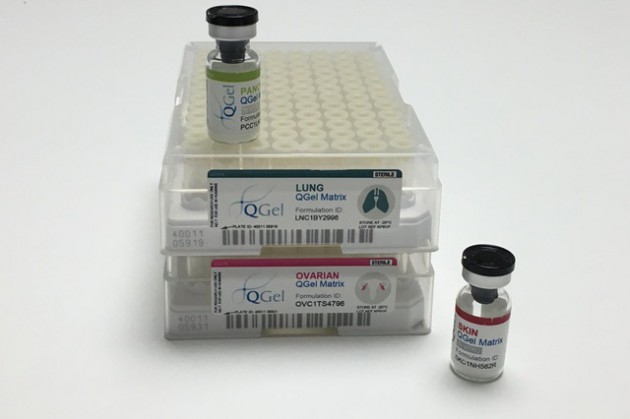Miniature organs and cancers grown in the lab could give doctors and pharmaceutical companies the chance to identify the most effective drugs and therapies, before they are given to patients.
At the Innovation Park of the Swiss Federal Institute of Technology in Lausanne (EPFL), biomedical engineer and entrepreneur Colin Sanctuary places several small vials onto a table, each labelled with an organ of the human body: pancreas, skin, lung.
“Organoid technology in general isn’t new – it’s been around since the 1980s,” he tells swissinfo.ch. “But our technology is unique because it is the only synthetic gel system that allows the growth of human cells in an in vitro environment.”
Sanctuary is the CEO of QGel, a start-up based at EPFL that has developed the first synthetic medium for growing “organoids” – cultured human cells and tissues that resemble miniature organs in structure and function – in an industrial setting.
While organoids don’t actually look like miniature body parts from the outside, they behave remarkably like the brains, livers, kidneys, and intestines they are derived from.
And with their potential for testing drugs and modelling cancers, they could revolutionise biomedical science and personalised medicine….
Source. SwissInfo




